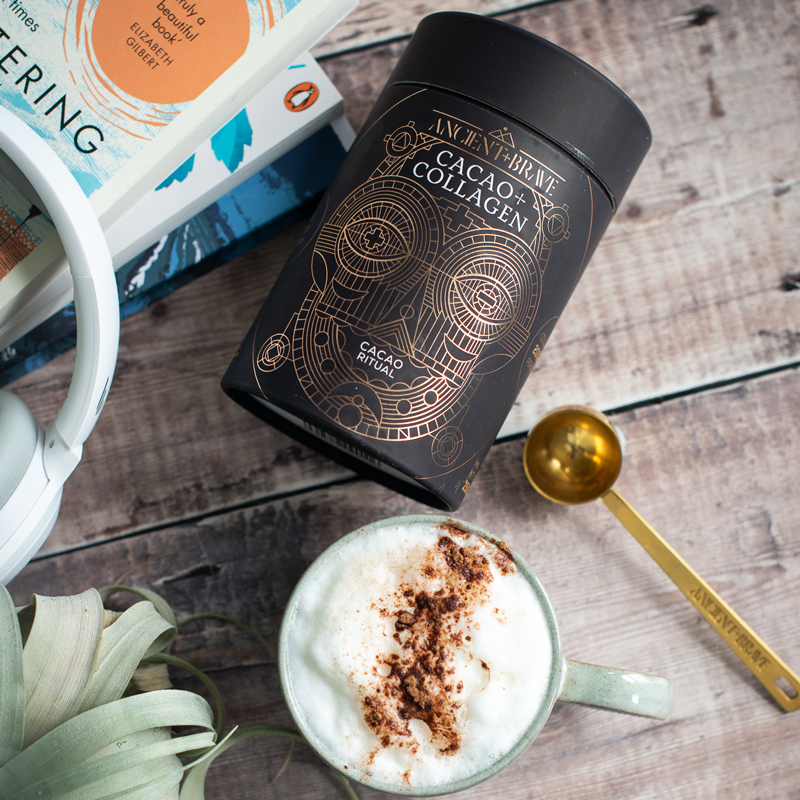Not sure what to get your friends for Christmas? These desirable last-minute gifts will arrive in time for the big day
And maybe a couple of bits for ourselves too


If you've not yet chosen all your Christmas gifts for friends, you're in luck. Below is a list of amazing present ideas, all of which will arrive in time for the big day.
Gifts will obviously be different depending on the individual, but to help offer some inspiration, the woman&home team and I have been making notes of products we think would make great Christmas gifts for friends for a while now, and below is our curated list. Everything below is something we believe has a lot of appeal, and many have an element of personalisation to help make any recipient feel extra special.
All of the products included in this list are ones we either have real experience of, or we really rate – and I'll be very clear which is which in the descriptions. Whether your friend loves fashion or beauty, is a home or fitness enthusiast, or loves all or some of the above, there's ideas here for all, at a range of budgets.
Christmas gifts for friends: Top retailers
- Anthroplogie: Top trending gift section we can't keep away from
- Marks & Spencer: Everything from cashmere socks to luxury flowers
- John Lewis: A gift section you could pour over for hours
- Nordstrom: Jewellery, bags, beauty gifts and everything inbetween
- The White Company: Gifts so luxurious you'll find it hard to choose
Christmas gifts for friends: The best friend

M&S food hampers are the perfect Christmas gift, and what better way to show your best friend how much you value them than with this gorgeous selection of fizz and chocolates. I like to buy my friends gifts that feel really indulgent and mean they can make time for themselves.
M&S has a range of beautiful hampers, but I love this one particularly as it feels so festive, and includes both of my best friend's favourite things to indulge in. And I would be lying if I said there's I won't encourage her to save it for our next together so I can steal a choccie or two.

To look at, this journal might not seem like much to gift a best friend, but trust me when I say not only is it beautiful up close and to hold (the materials are sublime), the meaning behind it is hard to beat when it comes to gifting.
Created by the team at Intelligent Change, the company's ethos is hard not to be inspired by. The company is driven to help reinforce all the good people have in their lives and build positive habits by small, achievable change every day. I was given this journal as a gift, and it very quickly became one of my most treasured possessions.

Nothing says 'extra special gift' quite like a new Jo Malone fragrance. The brand is a favourite of Kate Middleton and many a celebrity, and we're huge fans here at woman&home too. The most recent fragrance, Fir & Artemisia, is topping our wishlist right now.
"It’s so warm and comforting but with a little hint of subtle fresh green to lift it - perfect for the season but the herby notes definitely give it longevity," says our digital beauty editor Aleesha Badkar. "Also it’s lovely for gifting as it comes in a gorgeous bottle with a festive shiny orange bow."

A bottle of wine might seem like a simple gift, but if it comes with the promise of a girls night, it's possibly one of the best presents going. This by Amazon Australian Shiraz was a new one on us until recently, but wow, it's a smooth, beautiful red. It recently received a bronze award in the 2024 Decanter World Wine Awards, and we can see – or taste – why.

This fabulous little instant camera is a great way to celebrate your bestie, and capture your best moments. Forget digital photos that sit in your camera roll for years without ever being seen - this instax camera will print special moments immediately, so you can keep them with you or frame and remember them forever.

Who doesn't love to receive a fancy bottle of bubbles? Renowned for being one of the best in the biz, Taittinger displays notes of rich brioche, stone fruits and a touch of citrus, and the dry taste and fine bubbles give it that premium flavour and feel that just takes everything to another level. Or if you want to do something a bit different to the usual bottle of Champagne, why not go for two half bottles instead so they can have a taste of different types - they're also super handy for when you only feel like a glass or two!
Christmas gifts for friends: The beauty queen

Earlier in the year we interviewed Trinny Woodall, who told us about this magnifying mirror. She was given it by a makeup artist friend and said 'it's so good, it changes everything." Trinny detailed how a magnifying mirror can make a huge difference to the makeup and skincare you use as your skin ages. So this is not only a really practical gift for a friend to help keep them looking and feeling their best, it comes in a lovely little luxurious-looking pouch to keep it safe on their travels.

A must-have for all friends, for all seasons, L'Occitane hand cream is something woman&home digital beauty writer Naomi Jamieson always enjoys delighting her friends with. "This hand cream is as expensive-looking as it is useful, so I love gifting it to friends. The formula, packaging and scent are all so luxe and it just makes such a great little stocking stuffer or accompanying present, because a hand cream always comes in handy - no matter the season."

Makeup can be a tricky thing to gift, with skin types and shades all coming into play. But one fail-safe product, which I have gifted a few times now, is this Chanel lip gloss. It comes in a variety of shades, and being a gloss, is much easier to choose a colour that will suit. I love how this adds a real touch of luxury to mine and my friend's makeup bags - it's a real treat. And the packaging is beautiful too.

Trinny London's The Elevator neck cream has become a firm favourite among the woman&home team since. This 'gravity-defying' neck skincare not only smells divine, you can actually feel it working. The before and after photos shared by Trinny London of this product in action over time are remarkable, so it's no surprise it sells out really quickly. It's a fabulous product for an often overlooked area. Trust me when I say it is a gift your friend will definitely thank you - and it's back in stock right now.

This is the perfect gift for any friend who can't leave the house without those all-important make-up brushes. Mac has created this Christmas-style sequined gold bag, which houses four essential brushes for face and eyes, in travel-friendly sizes. It includes the 498SES Tapered Powder Brush, 497SES Slanted Bullet Concealer Brush, 499SES Large Foundation Blending Brush and the 595/596 Eye Shadow Double-Ended Eye Blending & Shading Brush.

Buying perfume for a friend is never something I would have considered until I smelt Miss Dior Blooming Boutique. Not only does it come the prettiest (and now arguably iconic) bottle, complete with bow, the perfume is delicate, elegant and feminine. And I haven't yet come across someone who doesn't like it. It's not cheap, but if you have the budget for something extra special, this gorgeous scent should definitely be a contender.
Christmas gifts for friends: The fashionista

Animal print is everywhere right now, and while it never really went away, it shows no signs of disappearing anytime soon. Choosing animal print clothes might be a step too far, but accessories make for brilliant Christmas gifts. "If you have a loved one who's a fan of leopard print, they'll no doubt be familiar with Rixo," says woman&home digital fashion editor Caroline Parr. "This scrunchie feels like such a treat and would make a great stocking filler."

Out at an event recently I noticed one of these initial keyrings on another attendees bag. I thought it was such a lovely personal touch, so much so I asked the lady who owned it where it was from. She very kindly told me it was from Oliver Bonas, and, funnily enough, her friend had bought it for her birthday not long before and she loved it. I've now bought two - one of which was a treat to myself.

Fashion is such a personal thing, and jewellery in particular can tricky to gift. "It's hard to know sizing for rings, and choosing earrings to suit someone's taste is a minefield," says Caroline. "But you'll never go too far wrong with a dainty little gold bracelet. They're great for stacking and this is the perfect price point."
Christmas gifts for friends: The homes enthusiast

"I have bought many of the 1/2 Pint mugs as gifts over the years for friends and family," says woman&home digital lifestyle editor Tamara Kelly. "A hearty mug hits the sweet spot for most because who doesn't love their own personal mug to enjoy their morning coffee or tea?
"And no-one does earthenware pottery better than Emma Bridgewater with its iconic, hand-painted designs that have become collectables in many homes."

"An amazing strong scented candle from one of my favourite luxury brands, this is a perfect home gift," says woman&home digital homes writer Emily Smith. "For the quality, £22 is a great price point – it's ideal for friends who change the style of their homes often thanks to it's neutral coloured wax and glass jar."
Our lifestyle editor Tamara Kelly adds: "Luxury but affordable, the scents are amazing. And best of all, it comes in a gift bag pre-wrapped so you don't have to even buy gift wrap." Keep an eye on The White Company sale for more brilliant Christmas gifts for friends.

"I love giving something festive around this time of year and this sterling silver tree decoration is my go-to," says woman&home digital homes ecommerce editor Laura Honey. "It’s one of those little luxuries that your friends can treasure, hanging up the Partridge in a Pear Tree year-after-year.
Dower & Hall brings out new designs every year, so you and your friends can start a collection for hanging on the tree, round doorknobs, and on the mantle too. I’ll warn you now, once you start collecting, you won’t want to stop.
Christmas gifts for friends: The fitness fiend

We don't know about you, but finding a nice-tasting collagen has been a struggle of late. Which is why, if you have a friend you know takes it each day, this beautifully packaged hot chocolate from Ancient+Brave is a brilliant gift.
Luxury raw South American cacao has been added to generous amounts of highly absorbable, hydrolysed bovine collagen peptides - so not only does it nourish your skin from within, it's an indulgent daily treat that will look great in your friend's kitchen. Plus, if you buy it now you get a Ritual Scoop for free.

The ultimate in luxury when it comes to getting a good night's sleep, the Drowsy silk eye mask is a gift your friends will immediately thank you for. Made from mulberry silk aka the softest fabric ever, this mask protects your eyes and skin from any damage or friction caused by bedding, and is said to completely block any light. Just make sure they have a good alarm clock if you get them this.

Give your friend the gift of waking up in the best possible way every day this Christmas. "Natural sunlight is one of the best ways to wake up in the morning but changing seasons and longer nights make this harder to come by," says woman&home digital health editor Grace Walsh. "The Lumie Sunrise Alarm is a small sunrise alarm clock that projects a natural light at a pre-set time in the morning to offer the same effect as a gentle ray of sunshine coming through the window."
Looking for more gift inspiration? Check out our guide to the best Valentine's Day gifts for him for 2025.
Sign up to our free daily email for the latest royal and entertainment news, interesting opinion, expert advice on styling and beauty trends, and no-nonsense guides to the health and wellness questions you want answered.

Kerrie is the editor of woman&home (digital). As a woman&home reader and senior digital editor with over a decade's experience, Kerrie’s main purpose is to ensure the brand delivers high-quality, relevant content to help enrich and improve women’s lives – a responsibility she feels hugely passionate about.